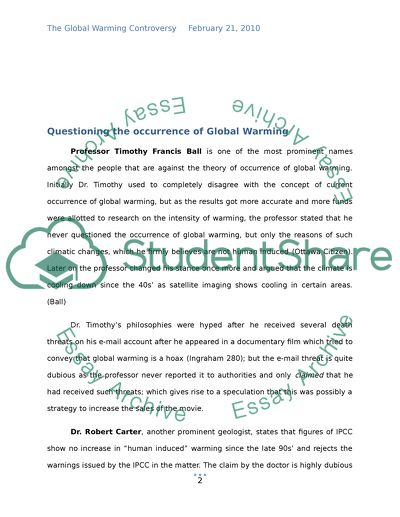Cite this document
(“Intergovernmental Panel on Climate Change Essay”, n.d.)
Retrieved from https://studentshare.org/environmental-studies/1563170-enviormental-global-warming
Retrieved from https://studentshare.org/environmental-studies/1563170-enviormental-global-warming
(Intergovernmental Panel on Climate Change Essay)
https://studentshare.org/environmental-studies/1563170-enviormental-global-warming.
https://studentshare.org/environmental-studies/1563170-enviormental-global-warming.
“Intergovernmental Panel on Climate Change Essay”, n.d. https://studentshare.org/environmental-studies/1563170-enviormental-global-warming.


